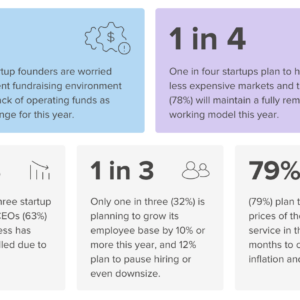
Over the last several months, Julie Rezek has pulled together six healthcare companies under one roof. The combined company, Bellevue-Wash.-based Advata, launched earlier this month with Rezek as CEO.
Advata was formed from six companies owned by the Renton, Wash.-based healthcare giant Providence, including recent acquisitions Kensci and Colburn Hill Group. The others are Alphalytics, Lumedic, Quiviq, and MultiScale by Providence.
Their software is now being integrated into Advata, which sells products for revenue cycle management, as well as population health tools. These tools, bolstered by artificial intelligence, aim to improve patient experiences, workflows, and accuracy of diagnoses.
The independently-operated company’s 30 customers include Providence and other healthcare providers, as well as insurance and medical device companies.
Rezek previously served as global category director at Facebook, where she forged partnerships with Amazon and other large clients. She also spent nearly two decades at global data and marketing agency Wunderman, where she led the Seattle office and a team of more than 250.
We spoke with her about what it took to merge six teams together, how Advata’s products can improve healthcare, and the relationship with Providence, its primary investor.
The interview was edited for brevity and clarity.
GeekWire: Thanks for speaking with us, Julie. What is Providence’s interest in helping forge Advata; why these six companies?
Julie Rezek: Data exists in healthcare systems, but what’s lacking is the insights on how to manage inefficiencies. And that’s really where our value proposition comes in. These companies are basically setting a new standard around advanced data analytics, using responsible AI insights to provide better health care operations, reduce costs, and recover revenue.
Some of the companies have been around for eight years, some have gone through the painful journey of explaining what responsible AI is to healthcare providers. I think we’ve got that leg up from a startup that’s starting in the space today, not only because of the years of experience, but also our connection to Providence.
How does working with Providence strengthen Advata?
We use them for our alpha and beta client. So we can stress test ideas, figure out how to scale and commercialize them.
Advata also has a research arm, can you tell us a little bit more about that?
When we think of artificial intelligence, we actually call it responsible AI. We know there’s a high cost to failure if you don’t get it right. We have a whole team and practice around how we look at responsible AI and how we work with our customers on it — everything from explainability to fairness, to making sure there isn’t any bias, to robustness to privacy security.
How do your revenue cycle management tools help customers?
Our solutions are focused on the accounts receivable side. Our solutions basically help provide data insights to improve the process and workflow and optimization of how to recover costs. Let’s say you are a hospital with millions of dollars in small claims of $2,000 or less — our solutions can help you figure out which accounts to go after that will actually enable you to get any money back. 75% of our customers fall within the revenue cycle management space.
How do your population health tools improve healthcare?
Every patient is unique, their journey is personal, but our insights can help providers and payers understand and predict patients and provide more data to know where they might be next in their journey. Our advanced analytics machine learning applications basically enable care to be more proactive and operations more efficient, like being able to help identify patients who need palliative care, because they are at high risk for mortality. It’s a win-win because it results in better care for the patient, and better results for the organization through better, smarter care decisions.
What happened to the leadership teams of the six companies? Did the teams also shrink as part of consolidation?
Before I came along some leaders had left and some had not. One of the CEOs (Sudarshan Chitre of Kensci), for instance, is now CTO. One of the founders (Jeff Means of Colburn Hill Group) is now an advisor.
We’re about 150 people, and if anything we’ve added people to build out the marketing department, as well as our channel and sales. We have about 60 to 70 employees based in the Seattle area, and the rest are remote.
What’s it been like bringing all these companies together?
I have had experience in the past of merging companies — the whole forming, storming exercise. A lot of people to my face have said I would never want to do your job. But I personally love the challenge of it. The last six months have been a really big emotional intelligence exercise. People would say, “I joined company X, why do I have to go to there to a new company?” That was basically the hardest part.
How else has your previous experience at Facebook and other companies helped you in your role in a healthcare company?
I’ve got a team of experts that have years of experience, but I can bring a fresh perspective on the things that we can change in healthcare. Data, machine learning, and AI have always been at the center of my career. Being able to continue to bring that knowledge with the infusion of innovation, and knowing how to drive deep customer insights into our products are key elements of my job and my past experiences.
What are some of the steps you took to integrate the teams?
We really made sure we crowdsourced everyone in the company around our values. We have our company goals on an objective key results document, so that everyone knows where we’re going as a company, what we are doing next. I have monthly town halls — there’s constant communication. Every Thursday is our big newsletter day. Every Friday I have a weekly meet and greet with six people, and we talk and they give me feedback. They tell me what is keeping them at night, or they answer questions.
The first six months has been merging these companies and getting people to be excited about where we are and where we are going, and then the next bit now is much more the external piece of it.





